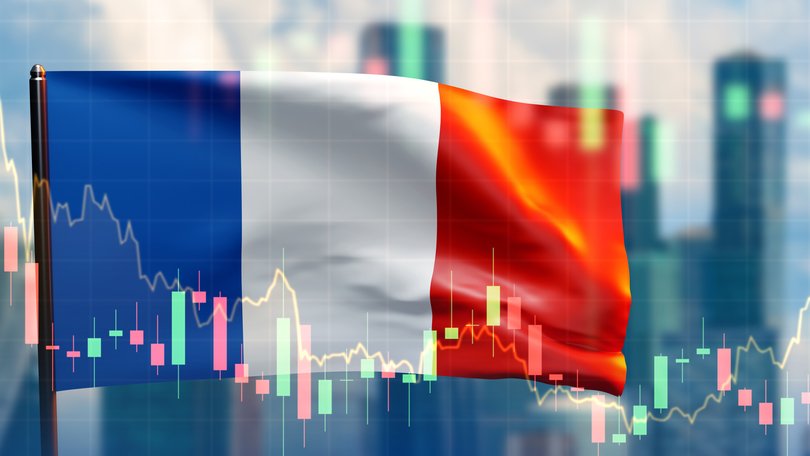THE NEW YORK TIMES: Political turmoil in France is leaving foreign investors wary
THE NEW YORK TIMES: ‘France has traditionally been the locomotive of Europe, now it has become the caboose.’

Prime Minister Sebastien Lecornu of France appeared to have headed off another debilitating government crisis Tuesday, proposing to suspend an unpopular increase in the official retirement age to fend off lawmakers who had threatened to topple him.
But after three government upheavals in France since last summer, the damage to the French economy has already been done.
Constant political turmoil has dampened growth, increased France’s borrowing costs and stoked growing wariness among investors, who are now thinking twice about betting on France.
Sign up to The Nightly's newsletters.
Get the first look at the digital newspaper, curated daily stories and breaking headlines delivered to your inbox.
By continuing you agree to our Terms and Privacy Policy.“This situation has been deteriorating month after month, and political inaction has been more and more frustrating,” said Olivier Redoulès, founder of Rexecode, a French economic consultancy. “Companies have been very sensitive to the political situation, and the big question is, what happens next?”
France had become increasingly attractive to investors under President Emmanuel Macron. For the last six years, the country has been Europe’s biggest recipient of foreign investment, in large part because Macron had adopted a pro-business agenda.
But analysts say investment and consumer spending have slowed since Macron abruptly dissolved the lower house of parliament in June 2024 in a gamble that was intended to prevent a far-right party, the National Rally, from gaining more power.
That maneuver backfired, leading to a deeply divided parliament. Three successive prime ministers have been ousted since then, after failed attempts to pass a budget that is desperately needed to tackle a surge in France’s debt and deficit.
The French economy had started to slow last year, expanding 1.2 per cent, down from 1.4 per cent in 2023. But the French economy is forecast to slow more sharply this year, to just 0.6 per cent, according to the Banque de France.
Although some of that can be linked to a cooling global economy and the impact of President Donald Trump’s tariffs, the sense that France has become an increasingly ungovernable country has factored into the mix.
“France has traditionally been the locomotive of Europe,” François Villeroy de Galhau, governor of France’s central bank, told French radio last week. “Now it has become the caboose.”
The uncertain outlook has led companies in France to pause investments, with a ripple effect into the economy, said Alain Di Crescenzo, president of France’s Chamber of Commerce and Industry.
“The first obstacle to business is the economic climate, and political uncertainties add to that,” said Di Crescenzo, who is also a senior vice president at Schneider Electric, one of France’s biggest companies.
“Businesses are cutting back on investment, and cutting back on spending and overhead costs, which means hiring,” he said. “That means less growth and fewer jobs.”
Yahya Fallah, an official at France’s Confederation of Small and Midsize Enterprises, said the collapse of three successive governments had dented business morale, especially among entrepreneurs who count on government funding to help lift business activity.
“You hear all this news and nobody likes it,” said Fallah, a co-founder of Open Aleph, a technology startup. “When you don’t know what the rules will be in one, two, three or even six months, you can’t make decisions.”
The political uncertainty raises questions about who is going to keep investing in France, said Holger Schmieding, chief economist at Berenberg Bank.
“It doesn’t mean French investment is coming to a halt,” he said. “But the interest of foreign investors would be weaker, because there’s a bad image effect.”
Lecornu, who resigned last week only to be reappointed two days later, is looking to prevent the new government from collapsing yet again, a fate that will be decided this week. Lawmakers are scheduled to hold a vote of no-confidence Thursday on the measures he is proposing. France badly needs to pass a budget for 2026 by year’s end to reassure investors, businesses and consumers.
Lecornu’s proposals include suspending Macron’s 2023 pension law to raise the age at which workers can start collecting pensions to 64 from 62. There will be “targeted and exceptional” tax increases for big businesses, and lower taxes for small companies.
The budget also includes major public sector jobs cuts, a freeze on pension payouts and a temporary surtax on individuals with incomes over 250,000 euros a year.
After his predecessor was ousted over a plan to cut the deficit to 4.6 per cent, Lecornu said he was open to a smaller effort of around 5 per cent percent.
In 2024, France’s budget deficit reached 5.8 per cent of its economic output, the largest since World War II, while the debt exceeded 3.4 trillion euros in September. The country’s sovereign debt rating has been downgraded twice since September.
In a sign of hope, France’s socialist party, whose support Lecornu needs to stay in office, said it would not vote against the budget after he suspended the increase in the retirement age.
Even so, the delay on pension reform will cost half 1 billion euros next year, and 1.8 billion euros in 2027. Lecornu warned that those costs would have to come from painful cuts elsewhere in the French economy, likely setting off another political battle before the end of the year.
This article originally appeared in The New York Times.
© 2025 The New York Times Company
Originally published on The New York Times
